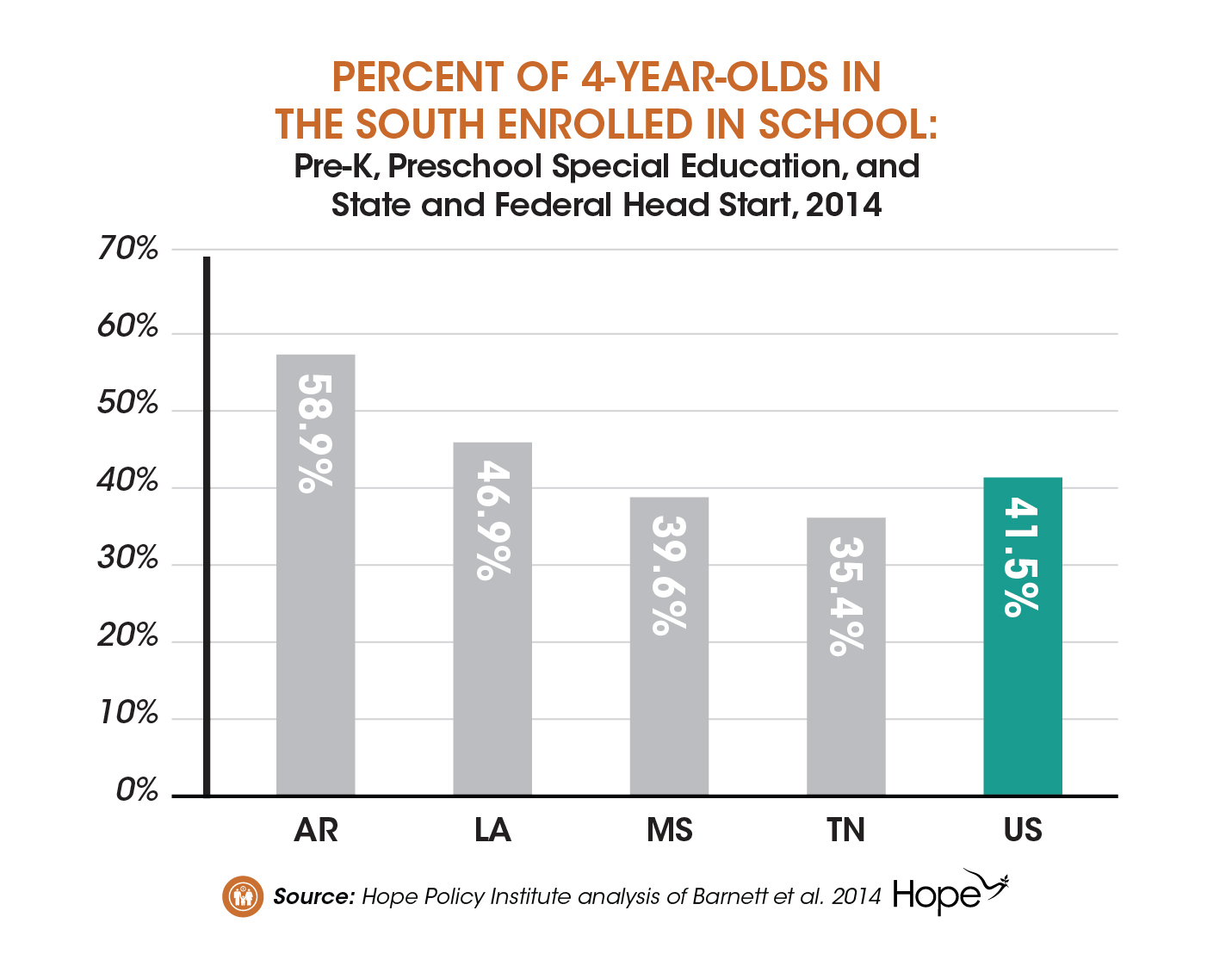Status of Women in the South: Work and Family
April 1st, 2016
The Hope Policy Institute continues its blog series on findings from the Institute for Women’s Policy Research report entitled Status of Women in the South. Thus far, our blog examined some of the challenges faced by women and families in persistent poverty, in addition to some of the economic inequalities faced by women and families that make economic mobility difficult. Recently, our blog highlighted findings integral to women’s economic security and access to opportunity.
In the United States, almost half (47.3%) of women participate in the labor force, which means few families have someone who can stay at home to take care of sick children or elderly parents in the absence of reliable family supports (National Women’s Law Center, 2014; Status of Women in the South). The Mid South states, Arkansas, Louisiana, Mississippi and Tennessee, continue to lack work-family supports that foster both state economic growth and economic security for women.
Based on the Work & Family Composite Index Score*, Arkansas received a letter grade of “C+” while Louisiana received a “C.” Mississippi has the lowest Score in the South** and received a “D-” while Tennessee received a “D.” The information below highlights some findings related to work and family for women in the Mid South states.
Elder and Dependent Care. Elderly people and people with disabilities oftentimes live healthy and independent lives but others may depend on family members for long-term care. Women make up the majority of caregivers, both working and non-working. In the U.S., 14.9% of women live with a person with a disability, and it is more common in the South to live with a person with a disability. Mississippi (19.5%) and Arkansas (18.8%) have some of the largest shares of women living with someone with a disability. Unfortunately, women with caregiving responsibilities are more likely to work part-time, which often means lower earnings and less access to employer-provided benefits.
Child Care. Reliable and affordable child care is essential for working mothers. Likewise, there are numerous cognitive and social benefits to early education for children. In the U.S., 41.5% of four-year-olds were enrolled in publically-funded Pre-K, Head Start, or special education programs in 2014. The level of enrollment varies in the Mid South states, as Mississippi and Tennessee have slightly lower rates than the national average. See chart. If parents do not have access to quality, affordable child care, they may feel pressured to choose between work and caring for their children.
Families are significantly dependent on women, both in terms of economic security and with family care responsibilities. The data underscore the need for states to provide basic supports for women, such as affordable and reliable child care, that help women balance work and family obligations.
Follow our #PolicyMatters blog for an in-depth look at the issues women face as well as women’s progress in the Mid South. Like us on Facebook and follow us on Twitter to stay informed!
*A Composite Index is calculated based upon that state’s scores on component indicators; the states are then ranked from best to worst and a letter grade is assigned based on the difference between a state’s performance in that area and goals established by the Institute for Women’s Policy Research
**In the report, southern states include Alabama, Arkansas, the District of Columbia, Florida, Georgia, Kentucky, Louisiana, Mississippi, North Carolina, South Carolina, Tennessee, Texas, Virginia, and West Virginia
Status of Women in the South Blog Series
- Women in the Mid South Continue to Face Obstacles
- Employment and Earnings
- Poverty and Opportunity
- Work and Family
Sources:
Anderson, J., Shaw, E., Childers, C., Milli, J., & DuMonthier, A. (2016). The status of women in the South. Retrieved from http://statusofwomendata.org/app/uploads/2016/02/SWSouth2.24-for-posting-online.pdf
National Women’s Law Center. (2014). Underpaid & overloaded: Women in low-wage jobs. Retrieved from http://www.nwlc.org/sites/default/files/pdfs/final_nwlc_lowwagereport2014.pdf








